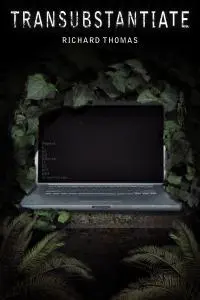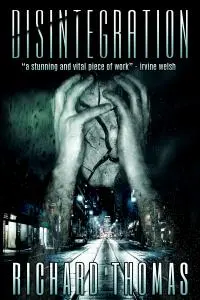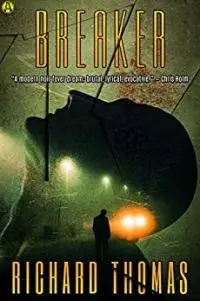I’ve been teaching now for about six years, getting my MFA back in 2012, and writing for over fifteen years in total. In that time, I’ve published over 170 stories (134 originals), in four collections, as well as four novels. I ran Gamut magazine for a few years, and Dark House Press as well, publishing eight books. So, I’ve been around the block a few times. Today, I’d like to bring all of that experience (good and bad) to this conversation so we can chat about whether or not you are ready to write a novel. The advice I’m going to give you here, IMO, will give you the best chance of success. Are you ready? Let’s find out.
VOICE
One thing you really should have figured out BEFORE you take on a novel is your voice. I’m not saying you can’t write in different genres, you can, but you should have a pretty good idea of who you are and what you specifically bring to the table. What separates you from me from Stephen King from Chuck Palahniuk? Think not only of your inspirations and influences, the authors you’ve read over the years, but also the films and television shows that have been a part of your life. Look at the authors and stories that stood out, that really blew you away. Look at your life—your culture, your orientation, gender, work history, family, travels, sex life, religion, love, loss, success, and failure. That all goes into who you are and what you write. My voice has changed from Transubstantiate to Disintegration to Breaker to Incarnate. But it has always been me at the center.
GENRE
 You should also have a pretty good idea of the genre (or genres) you want to write. Transubstantiate was a speculative thriller. Disintegration and Breaker were neo-noir thrillers with transgressive elements. Incarnate is a sin-eater, arctic horror novel. Mostly I write somewhere between fantasy, science fiction, horror, thrillers, neo-noir, new-weird, transgressive, Southern gothic, magical realism, and literary fiction. But not every book has all of those elements or genres. What I knew going into each book was what every genre asked for, expected, and I tried to deliver those key elements while also subverting the narrative, trying to do my own thing.
You should also have a pretty good idea of the genre (or genres) you want to write. Transubstantiate was a speculative thriller. Disintegration and Breaker were neo-noir thrillers with transgressive elements. Incarnate is a sin-eater, arctic horror novel. Mostly I write somewhere between fantasy, science fiction, horror, thrillers, neo-noir, new-weird, transgressive, Southern gothic, magical realism, and literary fiction. But not every book has all of those elements or genres. What I knew going into each book was what every genre asked for, expected, and I tried to deliver those key elements while also subverting the narrative, trying to do my own thing.
SHORT STORIES
This is a key element in your development, IMO. I strongly recommend that you do not attempt to write a novel if you have never written a short story. Why? Let me elaborate. It’s crucial that you know how to tell a story. You need to practice so many things—all of the Freytag elements, plot, character, setting, dialogue, themes, conflicts, etc. You need to understand pace and depth and emotion. You have to figure out your style—are you minimalist or maximalist; first person or third person; past tense or present tense; and genres as well. You need to fail when writing a short story, and then pick up the pieces to see what went wrong. You need to write that first story that works, and then go back and do it all over again, and this time, do it better. It’s a daunting process, and when you go from a story to a novel? Man, that’s more than ten times longer. Failing after working on a story over a week or a month is much different than failing after working on a novel for years. Trust me. I don’t even talk about my first novel. No, not Transubstantiate, I’m talking about a piece of crap titled Remembering. Ugh. So bad.
You probably don’t want to hear this, but I personally recommend that you take classes and hone your craft and write stories for about three years. Write and publish dozens of stories. It’s so important to your development. I took classes at the Cult with Craig Clevenger (twice), Max Barry, Monica Drake, Chuck Palahniuk, and Jack Ketchum. I took a class with Stephen Graham Jones at LitReactor. And then I got my MFA. What did I work on the entire time? Short stories. I didn’t write Transubstantiate until I’d written and published dozens of stories, until I’d broken out with my story “Stillness” in Shivers VI alongside Stephen King and Peter Straub.
Write stories that are 2-3,000 words long. Then go longer—up to 4k or 5k. See if you can go longer—up to 7,500. Maybe try out a novelette—up to 15,000 words. Or even a novella—up to 20k, or more. Stretch it out, play with genre, see who you are, and then go longer, deeper, with more emotion, and impact. And then do it again. And then get published. You are preparing yourself for a marathon, by sprinting, and then the mile, and then a 4k, stretching out, getting ready for that big story.
FREYTAG
Whether you want to use Freytag’s Triangle (or Pyramid) as your structure and framework or something else, it’s crucial to have some outline that can help you put it all together. Title, narrative hook, inciting incident, exposition, rising tension, internal and external conflicts, climax, resolution (and change), as well as denouement are all key elements that go into telling a story. If you do not know these terms, if you don’t have a structure in place, you are risking failure.
EXPERIENCE
Also, I strongly recommend you have some experience writing, taking classes, workshopping—all of that. You will most likely not do this alone, you will take a class, or share the book with friends, you might hire an editor. You need to know how this all works, what it’s like to write, create, edit, analyze, edit, revise, improve, cut, edit, and then all of the additional work of writing a query letter, shopping your book to agents and presses. There is a lot to do when penning a novel, so set yourself up for success by making sure you are ready to take this on.
GOOD IDEA WITH DEPTH
 If you’ve written flash fiction, you know that sometimes a story just doesn’t have the legs to go longer. If you’ve written short stories, you also know that some stories come in around 2k, some are closer to 5k. You can’t force it, pad it, or cut it—the story will be what it wants to be. When you are starting to think about a novel, you have to find a story that you are excited to write—the core of it something that fascinates you. You need to have the authority and experience to write it. You won’t see me writing a hard science fiction novel because I can’t do it—not my strength, I’m not smart enough, don’t get the math and science involved. And that's okay. There needs to be enough meat on the bone that you can write for days, weeks, some 70,000 words or more. That’s a lot.
If you’ve written flash fiction, you know that sometimes a story just doesn’t have the legs to go longer. If you’ve written short stories, you also know that some stories come in around 2k, some are closer to 5k. You can’t force it, pad it, or cut it—the story will be what it wants to be. When you are starting to think about a novel, you have to find a story that you are excited to write—the core of it something that fascinates you. You need to have the authority and experience to write it. You won’t see me writing a hard science fiction novel because I can’t do it—not my strength, I’m not smart enough, don’t get the math and science involved. And that's okay. There needs to be enough meat on the bone that you can write for days, weeks, some 70,000 words or more. That’s a lot.
Transubstantiate was Lost meets The Truman Show, seven different POVS, and I had so much fun telling their stories. It had a fairly diverse cast (three men, one god, one woman, one teenager, one computer) and that kept my attention. Disintegration was inspired by Jack Ketchum’s class and my worst fear—what happens when you see your wife and kids killed in front of you. It was Dexter meets Falling Down, set in my old apartment in Wicker Park. I could remember my own time in that space—drinking and drugs, suicidal thoughts, underground sex clubs, violence, and intrigue. There was plenty for me to explore there, even casting my own cat, Luscious, to play a role. Breaker was created out of my fascination with serial killers (Mindhunter, come back!). Was it nature or nurture? And could this big guy, Raymond (based on a mix of John Coffey, Boo Radley, Lenny, and Leon) avoid his fate? It was a mix of The Green Mile, To Kill a Mockingbird, Of Mice and Men, and The Professional. It was also set in my apartment in Logan Square. Incarnate came out of my desire to write about sin-eaters, my love of food and cooking, as well as the isolation of Alaska and the arctic, those 60 days of night, what might come out in the darkness. It’s a mix of The Terror and The Thing, with a dash of The Giver—for hope.
Each one of those books had to have enough to not only sustain me, but to hypnotize me, to excite me, so I was ready to work every day, banging out 4,000 words a day, sometimes, 40,000 words in one week, writing two of the books in less than a month. I was immersed in those worlds, and when I poured myself into them, it took a lot out of me. But in the end, it was worth it.
HAVE PATIENCE
Understand that this is a marathon not a sprint—your writing career in general—as well as writing your first book. Your first book will likely be painful, and will probably take you months, if not years to write. And it’ll probably suck. It’s okay, you’ll get better. If you’re lucky and work hard, you’ll write some crappy shorter stories, and your first novel will not be a disaster. Fingers crossed. When I say that I wrote Breaker in 25 days, or Incarnate in six weeks, understand that I failed a lot before them. I not only wrote a ton of bad short stories, but I also started and stopped and failed on every single novel I’d written. I thought about Incarnate for two years before I could get it going on the page. Cut yourself some slack, if it was easy, everyone would do it.
FIND ALLIES
 So yes, I do happen to teach a novel-in-a-year class, as well as other offerings, but that’s not necessarily what I’m talking about here. Find yourself a network of friends and peers and work on your craft with them. In an MFA program, or a workshop, or locally, or in various classes—find writers who are on your path and work with them. They will give you honest feedback, and not be “yes men.” They will also lift you up and tell you when you are shining. Find teachers that can teach you, mentors that can mentor you, and authors that can inspire you—the carrot to the horse that pulls the cart that is your career. My success did not come from working alone—I had so many friends, peers, teachers, advisors, and authors along the way that were kind, and honest, and constructive, and supportive. We may write these stories alone, in the dark of night, or in the rays of the rising sun, but we don’t have to do all of the rest of it alone. Lean into your friends, your family, your peers, and your instructors. Nobody expects you to do this alone. We’re you’re family. We understand your pain, but also relish your success as well.
So yes, I do happen to teach a novel-in-a-year class, as well as other offerings, but that’s not necessarily what I’m talking about here. Find yourself a network of friends and peers and work on your craft with them. In an MFA program, or a workshop, or locally, or in various classes—find writers who are on your path and work with them. They will give you honest feedback, and not be “yes men.” They will also lift you up and tell you when you are shining. Find teachers that can teach you, mentors that can mentor you, and authors that can inspire you—the carrot to the horse that pulls the cart that is your career. My success did not come from working alone—I had so many friends, peers, teachers, advisors, and authors along the way that were kind, and honest, and constructive, and supportive. We may write these stories alone, in the dark of night, or in the rays of the rising sun, but we don’t have to do all of the rest of it alone. Lean into your friends, your family, your peers, and your instructors. Nobody expects you to do this alone. We’re you’re family. We understand your pain, but also relish your success as well.
IN CONCLUSION
Are you ready to write that novel? You tell me. I’m going to guess that a lot of you reading this are going to say, “No, not yet.” And that’s okay. That’s a smart response, a reasonable reaction, you’re open and listening, absorbing what I have to say here. You are honest with yourself and realize it’s not time. Yet. But others of you may have had a few sparks of excitement when reading this column. You may keep saying, “Yes, I am doing that, Richard,” or “I know, I agree, I just got done with that.” Good. You might be ready. Let me know if I can help.
I love writing short stories, but I can honestly say that as an author, there is nothing quite like writing a novel. The space, the depth, the emotion, the impact? It’s quite powerful, when done right. As a reader, I go back and re-read several different novels, every year. And when I think of the books that have impacted my life, my career, they hold a special place in my heart. Work toward this goal. And when you’re ready? Give it everything you’ve got.
Get Transubstantiate at Amazon

About the author
Richard Thomas is the award-winning author of seven books: three novels—Disintegration and Breaker (Penguin Random House Alibi), as well as Transubstantiate (Otherworld Publications); three short story collections—Staring into the Abyss (Kraken Press), Herniated Roots (Snubnose Press), and Tribulations (Cemetery Dance); and one novella in The Soul Standard (Dzanc Books). With over 140 stories published, his credits include The Best Horror of the Year (Volume Eleven), Cemetery Dance (twice), Behold!: Oddities, Curiosities and Undefinable Wonders (Bram Stoker winner), PANK, storySouth, Gargoyle, Weird Fiction Review, Midwestern Gothic, Gutted: Beautiful Horror Stories, Qualia Nous, Chiral Mad (numbers 2-4), and Shivers VI (with Stephen King and Peter Straub). He has won contests at ChiZine and One Buck Horror, has received five Pushcart Prize nominations, and has been long-listed for Best Horror of the Year six times. He was also the editor of four anthologies: The New Black and Exigencies (Dark House Press), The Lineup: 20 Provocative Women Writers (Black Lawrence Press) and Burnt Tongues (Medallion Press) with Chuck Palahniuk. He has been nominated for the Bram Stoker, Shirley Jackson, and Thriller awards. In his spare time he is a columnist at Lit Reactor and Editor-in-Chief at Gamut Magazine. His agent is Paula Munier at Talcott Notch. For more information visit www.whatdoesnotkillme.com.








